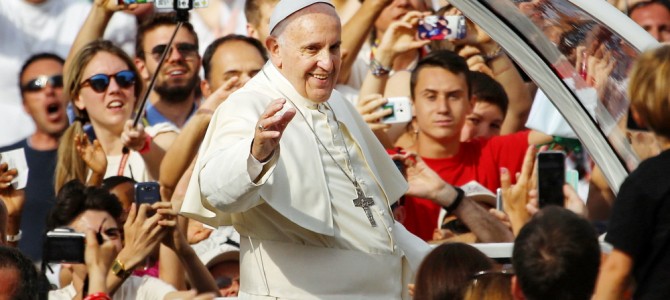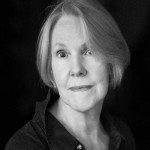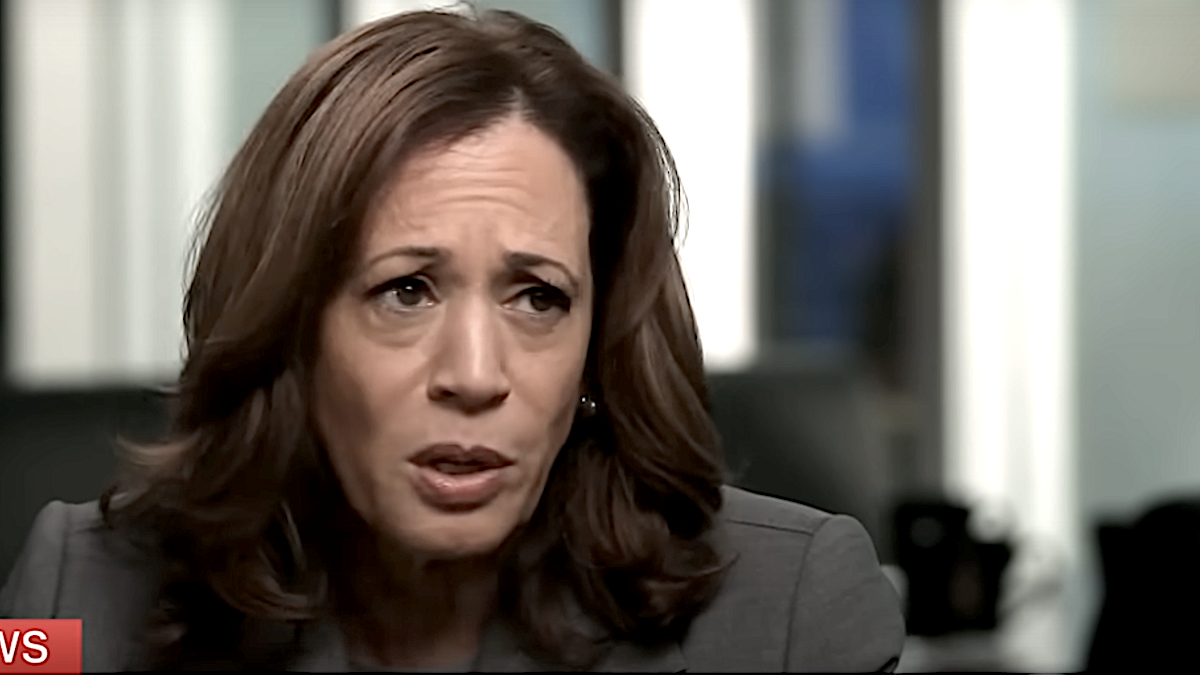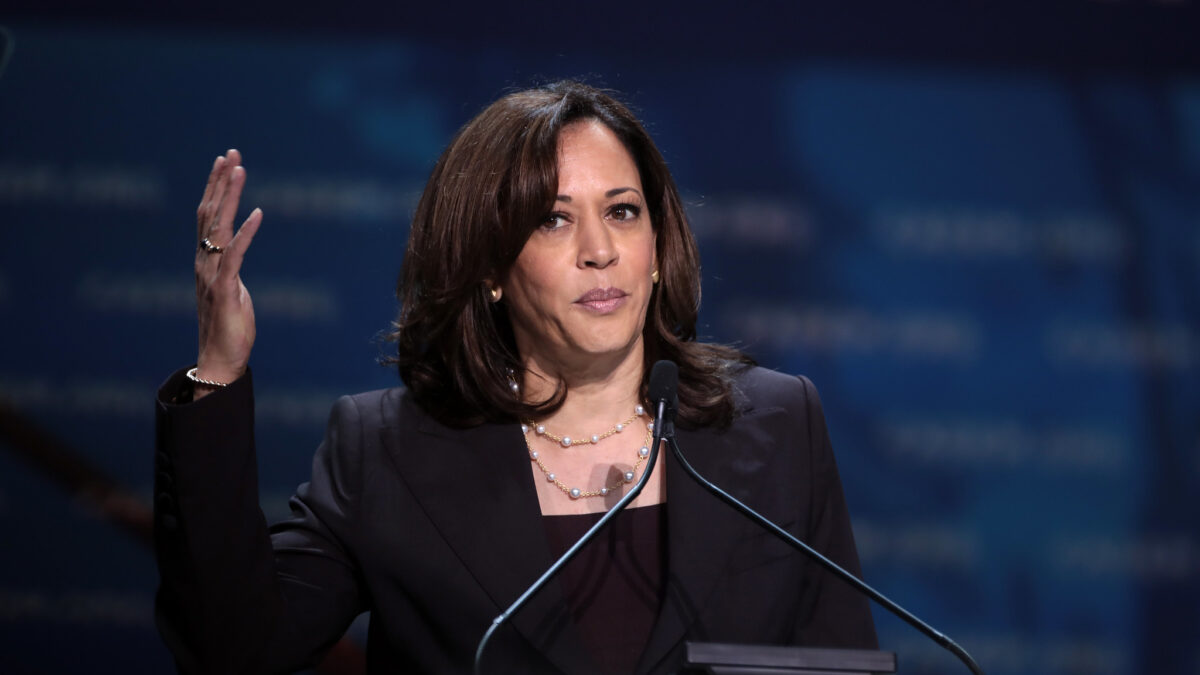In practice, the U.S. Conference of Catholic Bishops (USCCB) is an open borders lobby, a fifth column in cope and chasuble. Its most recent instruction to the laity insinuates that open borders are a core tenet of a Christian worldview.
The group recently voted to rewrite their quadrennial advisory for Catholic voters: “Forming Consciences for Faithful Citizenship.” The document traditionally appears the November prior to a presidential election year. Ostensibly, June’s comprehensive revision was done in anticipation of the 2020 election. But the timing — a year and a half ahead of schedule — suggests a move to influence the 2018 midterms.
The stated purpose of this early revision is to “apply the teaching of Pope Francis to our day.” On bedrock matters such as abortion, euthanasia, obligation to the poor and vulnerable, and the nature of marriage, Francis teaches nothing that requires a new edition. Only his zeal for open borders, plus the utility of climate change dogma for global income distribution, bears on our coming elections.
Francis has a blinkered grasp of the complex political, cultural, and moral underpinnings of wealth production and, correspondingly, of the means to alleviate poverty. He is a globalist for whom prosperity is a zero-sum game divorced from the aims, habits, and political milieu of national cultures. Hence, his scatter-shot strikes against “a system that causes enormous suffering to the human family … and our Common Home in order to sustain the invisible tyranny of money that only guarantees the privileges of a few.”
People of good will can debate what works and doesn’t work in reducing poverty here and in the developing world. But the bishops, echoing Francis, do not offer grounds for debate. Instead, they rely on dogmatic assertions, insinuating equivalence between moral theology and their own politics.
According to USCCB, a correct Catholic conscience assigns no guilt to unproductive and failed states. It spares poor nations any agency in their own condition. When Andrés López Obrador, front-runner in Mexico’s upcoming presidential election, called for mass-migration to the United States as “a human right,” he raised no eyebrows among the USCCB.
Undermining immigration policy is a USCCB mission. It does so through such affiliates as Migration and Refugee Services and the Campaign for Human Development. It has sponsored National Migration Week, an annual media event, since the 1970s. It founded a subsidiary, the Catholic Legal Immigration Network, to promote amnesty. And in 2016, the bishops aggressively opposed efforts to obligate non-compliant locales — sanctuary cities — to enforce existing immigration law.
Addressing last year’s 3rd World Meeting of Popular Movements — a mass political liturgy initiated by Francis — San Diego’s Bishop Robert McElroy of San Diego, called on religious leaders and activists to obstruct ICE attempts to locate and/or deport illegals. “We must all become disrupters,” he said.
At the same rally, Ghana’s Cardinal Peter Turkson, alluded to the shooting of Michael Brown, in Ferguson, Missouri: “I have learned how government policies and programs and business decisions can interact subtly to perpetuate isolation, poverty and hostility on racial lines, which can explode in a police shooting of an unarmed black teenager.” The USCCB apparently found nothing questionable about either statement.
By fanning a political stance favorable to open borders, the USCCB protects the annual flow of hundreds of millions of federal monies to itself and such affiliates as Catholic Relief Services and Catholic Charities. (More than $500 million in 2016.) In addition to using tax dollars to support programs many tax payers oppose, immigration is an income-producing issue at the diocesan level. As bishops struggle to maintain infrastructure, they have incentive to breathe divine purpose into practical politics: “Our purpose is to help Catholics form their consciences in accordance with God’s truth.”
God’s truth tilts left, it would seem. The bishops declare: “The Church is principled but not ideological. … the foundational principles that guide these teachings should not be … used selectively in order to serve partisan interests.” Yet partisanship is precisely the agenda. Their “call to political responsibility” is a progressive propaganda dressed in utopian boilerplate (“pursuit of a civilization of love”) and tailored to a Christian idiom.
They remind us we are “citizens of the heavenly Kingdom, whose reign is not yet fully realized on earth but demands our unqualified allegiance.” Implicit in that not yet is expectation that, in time, the ideal society will be achieved. Whoever said, “My kingdom is not of this world,” (no yet about it) failed to anticipate the saving power of the global state toward which our bishops point their staffs.
Illegal immigration poses no problem for the bishops. Viewed from the piazza of global solidarity, there are no aliens, only “newcomers.” [Bold font peppers the text.] The “dignity of the human person,” a phrase repeated multiple times in the text, washes away divisive judgments. High-sounding, the phrase is an all-purpose abstraction that can serve any ends. (Alfie Evans, remember, was made to suffocate and dehydrate to death in the name of human dignity.) For voters, the abstraction is meant to trump immigration law.
At points, our bishops appear disassociated from the country which supports them. As death penalty abolitionists, the bishops scold: “Our nation’s continued reliance on the death penalty cannot be justified.” Yet capital punishment is rarely invoked. In 2016 twenty people were executed, this after 7 to 34 years of additional post-sentencing adjudication. In that same year, 1,930 murders were committed in California plus 1,459 in Texas alone. Where is the reliance?
By admonishing voters to “humanize globalization,” the bishops position themselves in the vanguard of a globalist world freed from competing national aims and interests. To a clerical elite impatient for the withering away of the national state, an open border is the staging ground for assault on citizenship and national sovereignty.
The conscience guide includes pro forma nods to national security and border integrity. But its heart is elsewhere. The USCCB cherishes visions of a “global community” [a fixed refrain] joined in “global solidarity” with “international bodies and international law” to address “global poverty,” “global climate change,” “global problems’, and the “global dimensions” of all earthly woes between here and New Jerusalem.
“Economic justice and care for creation,” twinned with climate alarmism, are the hooks on which hang the one-world gospel: “It is important that we address the rising number of migrants who are uprooted from their homeland as a consequence of environmental degradation and climate change.”
Doctrinaire assertions substitute for data and argument throughout:
Care for creation is a duty of our faith and a sign of our concern for all people, especially the poor who, both everyday experience and scientific research show, suffer the gravest effects of all attacks on the environment. … We are part of a global community charged with being good stewards of the earth’s environment, what Pope Francis calls “our common home, which is being threatened.” [italics mine]
Concern for wise and just stewardship of resources is not new. It was central to what Max Weber called the Protestant ethic, a critical factor in the conservation movement of the mid-1800s. What is new is the apocalyptic mystagoguery of a pope who warns oil executives about the looming potential of fossil fuels to destroy humanity.
Global community. Our common home. The document imposes an aura of religious authority on figures of speech. Chief among these is the globalist fantasy: “We are one human family.” A trope favored by recent pontificates, and repeated by the USCCB, it confuses zoological taxonomy with social reality. We are one species, but only in terms of Linnaean classification can we be called a family. That intimate, affective unit we recognize as a human family is bound by blood ties, law, custom, and cultural affinity.
Voting instruction bends the gospel mandate to “welcome the stranger” into a rallying cry that omits biblical distinctions between strangers. The journeying foreigner and the alien are not the same. Predictably, our bishops ignore Ruth’s resonant pledge to Naomi — “Thy God will be my God; thy people, my people.” Her words offend against diversity. Open borders enthusiasts are selective in their quotes. Among the ones they neglect: “Cursed is the man who moves his neighbor’s boundary stone.” (Deut. 27:17).
Much of the guide is familiar: The USCCB is against war, torture, oppression, all the obligatory unpleasantnesses. It is for nuclear disarmament, children, affordable housing, and healthcare. It endorses the ever-expanding welfare state. 2018 moves the needle further left by championing “food security for all,” a neologism for distribution of subsidized food, and “sustainable agriculture.” This last signals limits on economic growth and political freedom to save later generations from unspecified catastrophe. Put simply, it obligates Catholics to repent beforehand for what might occur later — what Pascal Bruckner calls “compensatory sadism.”
Church teaching is coherent, the bishops insist, “and rests on a comprehensive vision of the dignity of the human person.” But the incoherence of the application of Church teaching erodes its purposes.
What serves human dignity in concrete situations is beyond the compass of a rhetorical abstraction. Our bishops, curtsying to Francis, ignore practical distinctions between protecting the poor themselves and protecting or creating programs that do nothing to break the cycle of poverty. They prefer welfare spending to the growth that is a surer antidote to poverty.
Let us not argue with the USCCB on this: “It is as citizens faithful to the Lord Jesus that we contribute most effectively to the civil order.” Yes, but the spirit of fidelity unfolds first and most decisively within our flesh-and-blood families, in person-to-person allegiance to one another. That indwelling constancy precedes “political and financial support for beneficial United Nations programs” and “other international bodies.”
At crucial moments in particular places, the demands of fidelity might necessarily, and in good conscience, contradict the game plans of self-ordained world improvers.









